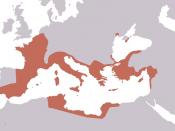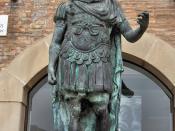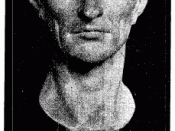If you delve into the content of almost any novel, there is almost always some kind of struggle for power. It could be for rightful integration into society; power over an island; power over a country; or in some cases, even power over the minds of others. These not at all uncommon struggles for power are what keep us interested in the plot of a book. The ongoing battle between a character and his cause makes it impossible to put down a good book. For instance, the novel 1984 by George Orwell is about the struggle of a man and a woman to somehow find a way to get out of the constant barrage of cameras and mind control conducted by their government. Although the two of them eventually lost the battle, there was still a victor in the struggle for power: their government.
In the novel Fahrenheit 451, by Ray Bradbury, the main struggle for power deals with the government.
This overly oppressive, almost Orwellian style bureaucracy, tries to make sure there is no interaction with books at all. They believe that books permeate their society and corrupt the minds of the people. Unannounced searches of property by 'firemen' are not at all uncommon. At the slightest inkling of this futuristic contraband, these firemen will rummage through all of one's property, at times, destroying everything in their path.
On the opposite side of that spectrum, there is a struggle for power by the people as well. There is the woman who hid several thousand volumes of books in her house. She loves these books so much that when the firemen ransacked her house, she went down with the books without hesitation. In another example of this ongoing struggle for power, some people's lives were actually transformed into books. Their...


